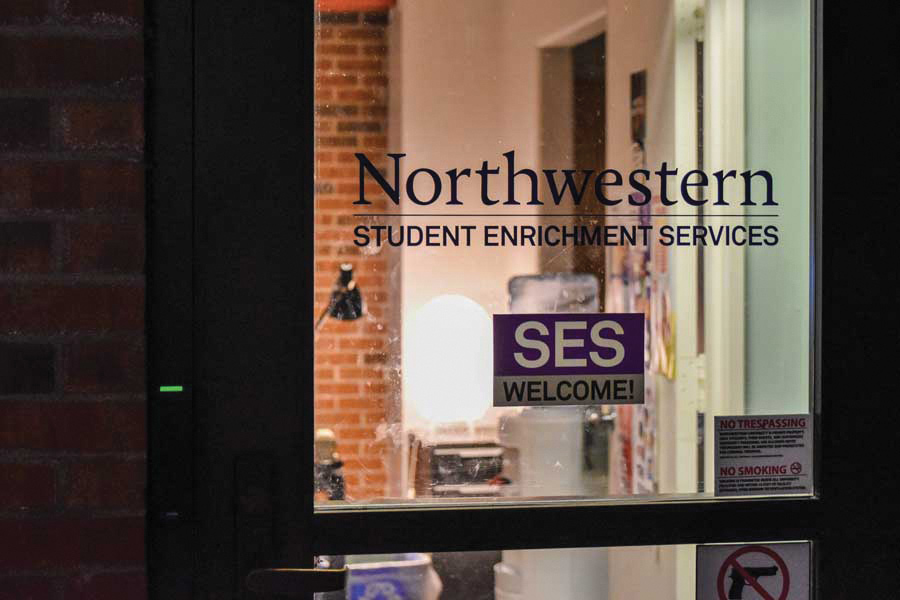ASG analytic survey shows students cite socioeconomic status as leading cause of marginalization on campus
Brian Meng/Daily Senior Staffer
Student Enrichment Services office, located in Foster-Walker Complex. SES formerly ran the SEEN fund, which is now being administered through the Office of Undergraduate Aid.
February 26, 2020
In 2017, about two-thirds of Northwestern undergraduates came from families in the top income quintile, according to a report by The New York Times’ The Upshot. Since then, the University has worked to increase the number of first-generation and low-income students it admits.
Today, Pell-eligible students tend to make up at least 20 percent of incoming classes, while 61 percent of undergraduates receive financial aid.
However, despite this increase in first-generation and low-income representation, socioeconomic status continues to impact students’ experience at Northwestern. According to this year’s Associated Student Goverment analytics survey, many students report feeling marginalization on campus.
The survey, which received 1,359 responses, asked respondents to weigh in on the statement, “I have never felt marginalized at Northwestern due to race, gender, sexual orientation, ability status, ethnicity, nationality, socioeconomic status or religion.”
Of those surveyed, 39.41 percent responded “disagree” or “strongly disagree” to the statement, with the socioeconomic status being the leading reason cited at 23.5 percent. Gender and race were cited at 19.9 and 17.5 percent respectively.
When learning of these results, Medill sophomore Imani Harris said she was surprised socioeconomic status was the leading social identity cited.
“I’m really surprised it’s not race,” Harris said, “but maybe that’s just me because I’m black and most of this campus is white so most of them aren’t thinking about race the way I’m thinking about race.”
Harris, who identifies as low-income, also added that the proportion of wealthier students at Northwestern has also shaped her personal experience on campus.
“To be a person that’s not rich and see Canada Goose jackets everywhere and AirPods everywhere and MacBooks everywhere — something I’ll never be able to afford — is really hard.”
However, Harris said she anticipated the difficulties of being a low-income student on campus before arriving, especially after seeing Northwestern’s sticker cost.
ASG executive vice president Adam Davies said ASG plans to work more on issues facing FGLI students heading into Spring Quarter. They also highlighted several initiatives ASG has worked on this year to improve FGLI campus life.
So far this year, for example, ASG has worked with Student Enrichment Services on issues such as the Student Emergency and Essential Needs Fund, which provides assistance for emergency expenses which was previously administered through SES and formerly known as the SEEN Fund. Now, the Fund is controlled through the Office of Undergraduate Financial Aid.
When this change occurred during the fall, ASG advocated for making the fund as accessible as possible to FGLI students, according to Davies. Similarly, ASG worked with SES on the Residential Services Lockout, Lock Change and Temp Card Fund, which provides waivers for lockout and temp card fees for students with demonstrated need.
However, Harris pointed out that class issues extend beyond campus.
“In general, the amount of times that people say ‘Let’s just Uber’ or I go out with someone one night and they’re like ‘Let’s go get dinner’ the next night, or things that just aren’t realistic monetarily for me, happen all the time,” she said.
Email: cbuchaniec@u.northwestern.edu
Twitter: @caty_buchaniec



